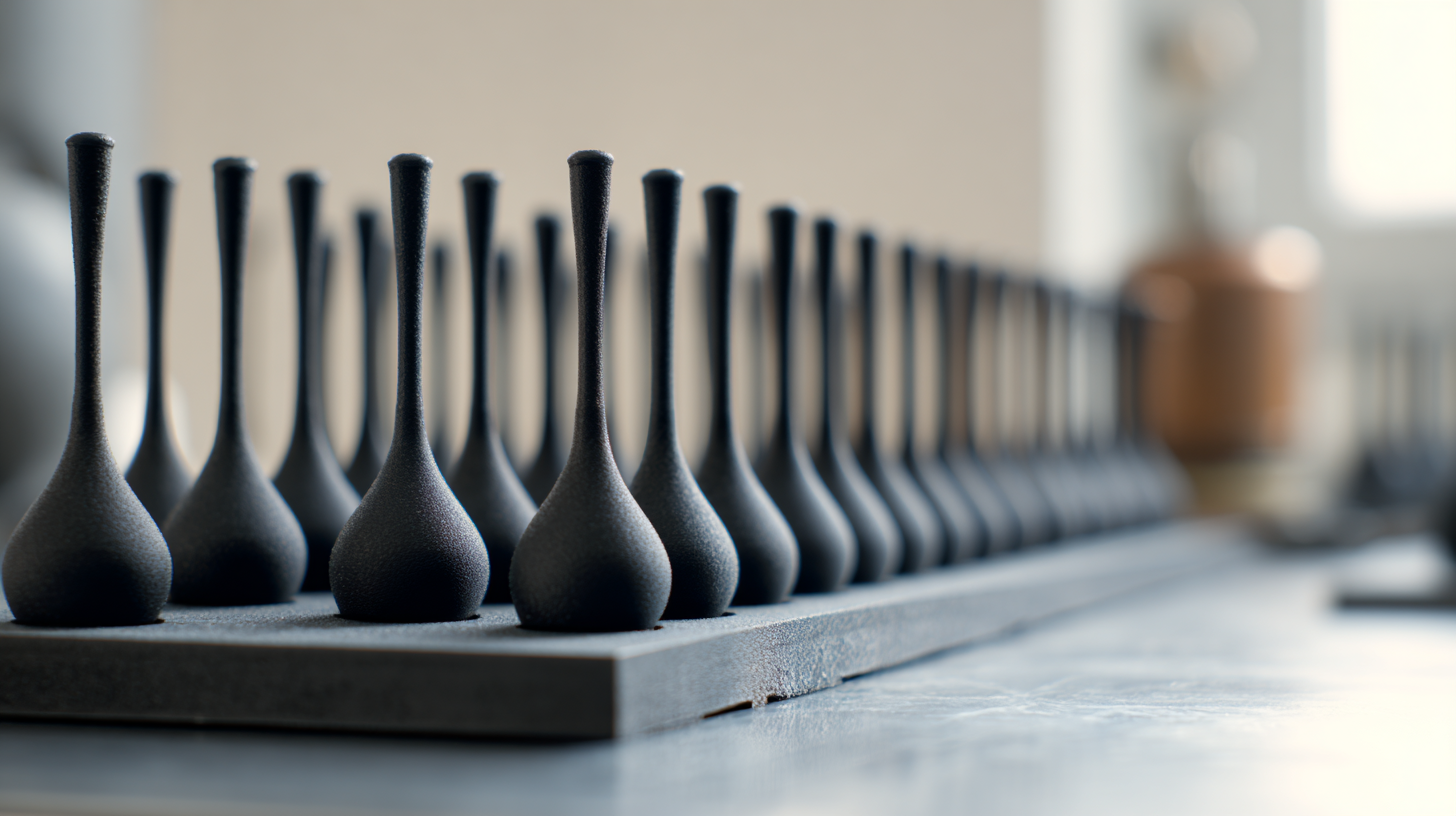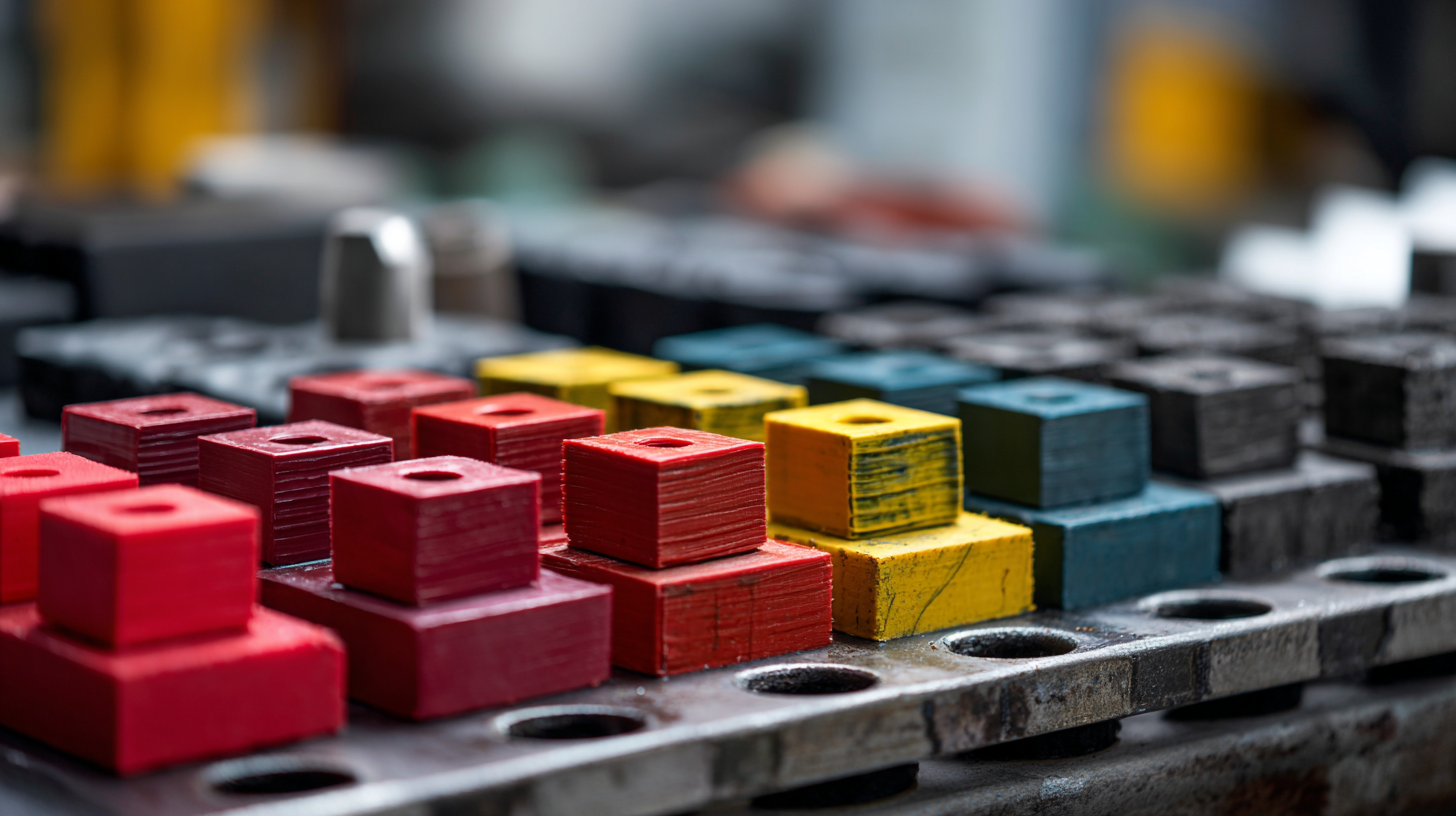Get a custom solution for free
-
Phone
-
E-mail
-
Whatsapp
-
Wechat


In an era where customization is key to meeting diverse industrial needs, **Bespoke Rubber Moulding** has emerged as a vital solution for manufacturers seeking to enhance product performance and longevity. A recent report by Smithers Pira indicates that the global rubber market is projected to reach $46.5 billion by 2026, highlighting the increasing demand for tailored rubber components across various industries including automotive, aerospace, and consumer electronics. As businesses strive for excellence, choosing the right manufacturer is critical to achieving optimal results. Factors such as material quality, precision engineering, and production capabilities can significantly impact the effectiveness of bespoke solutions, making it essential for companies to conduct thorough comparisons when selecting a partner. This blog will explore inspiring examples of high-quality bespoke rubber moulding solutions and offer insights on how to choose the right manufacturer to ensure lasting success in your projects.

Bespoke rubber moulding is a specialized process catering to specific industry needs, offering versatility in design and application. According to a recent market report by Grand View Research, the global rubber moulding market is projected to reach $25.34 billion by 2025, with a compound annual growth rate (CAGR) of 5.1%. This growth is fueled by the increasing demand for custom solutions in sectors like automotive, aerospace, and consumer goods. Understanding key concepts such as material selection, curing processes, and design specifications is crucial for tailoring moulds that meet rigorous performance standards.
The techniques employed in bespoke rubber moulding include compression moulding, transfer moulding, and injection moulding, each offering distinct advantages depending on the application. For instance, injection moulding is particularly efficient for high-volume production runs, producing uniform parts with intricate details. Data from the Rubber Manufacturers Association highlights that 62% of manufacturers prefer injection moulding for its rapid cycle times and material efficiency. By marrying these techniques with innovative design practices, manufacturers can achieve not only functional components but also improve overall product quality and durability, ensuring they stay competitive in an evolving market.

Custom rubber moulding plays a crucial role across various industries, meeting unique application needs with tailored solutions. It is commonly used in automotive, aerospace, medical, and consumer goods sectors, providing reliable components that enhance product performance. The versatility of rubber materials allows for intricate designs that can withstand harsh environments, making custom moulding an ideal choice for manufacturers looking to improve durability and efficiency.
When considering bespoke rubber moulding solutions, it’s essential to evaluate the specific requirements of your project. Here are some tips:
The global specialty nitrile butadiene rubber market is also witnessing significant growth, projected to reach a size of USD 1.45 billion by 2034. This increase underscores the rising demand for custom rubber solutions across industries, enhancing competitiveness and innovation. As businesses continue to adopt bespoke moulding solutions, the focus on quality and customization will drive advancements in product development.
Creating bespoke rubber moulds can elevate your projects from ordinary to extraordinary. The process, while intricate, can be simplified with a step-by-step approach that ensures precision and efficacy. According to a recent market analysis, the global rubber molding market is expected to reach USD 7.5 billion by 2025, driven by innovations in custom rubber solutions. This surge highlights the growing demand for tailored products, making it the perfect time to explore custom rubber moulding.
Tip: Start with a clear design. Use CAD software to create accurate blueprints of your desired mould. This initial step will save you time and materials in the long run, ensuring you achieve the best possible outcome.

The evolution of bespoke rubber moulding solutions is significantly influenced by the choice of materials, especially as industries demand higher quality and performance. Recent advancements highlight the growing inclination towards composite materials in manufacturing, particularly in the automobile sector. These materials offer enhanced durability and lightweight characteristics compared to traditional metals, making them highly suitable for custom rubber applications that require precision and resilience.
Additionally, the push for sustainability in production has led to innovations in rubber formulations. Companies are increasingly investing in micronized rubber, which not only enhances the mechanical properties of the end product but also aligns with eco-friendly practices. For instance, the use of sustainable materials in rubber moulding not only meets performance standards but also reduces environmental impact, as highlighted in recent studies assessing the lifecycle of building materials. These trends indicate a promising shift towards integrating high-quality, sustainable options in the bespoke rubber moulding industry, driving both performance and ecological responsibility.
The bespoke rubber moulding market has been evolving rapidly, driven by advancements in technology and increasing demand across various industries. Case studies have illustrated how companies are leveraging these custom solutions to significantly enhance their product offerings. For instance, a recent report by MarketsandMarkets estimates that the global rubber moulding market will reach $26.2 billion by 2027, reflecting a compound annual growth rate (CAGR) of 3.5% from 2022. This growth is largely attributed to the rising need for tailored solutions in automotive, aerospace, and medical applications, where precision and durability are paramount.
One compelling success story comes from a leading automotive manufacturer that collaborated with a bespoke rubber moulding expert to design a high-performance seal for their electric vehicle lineup. By implementing advanced materials and custom moulding techniques, they achieved a 20% reduction in weight while exceeding industry performance standards for weather resistance. This strategic partnership not only improved product functionality but also contributed to the manufacturer's sustainability goals, demonstrating the transformative power of bespoke rubber moulding solutions. With demand for customized applications on the rise, businesses are increasingly turning to these innovative techniques to gain a competitive edge.
